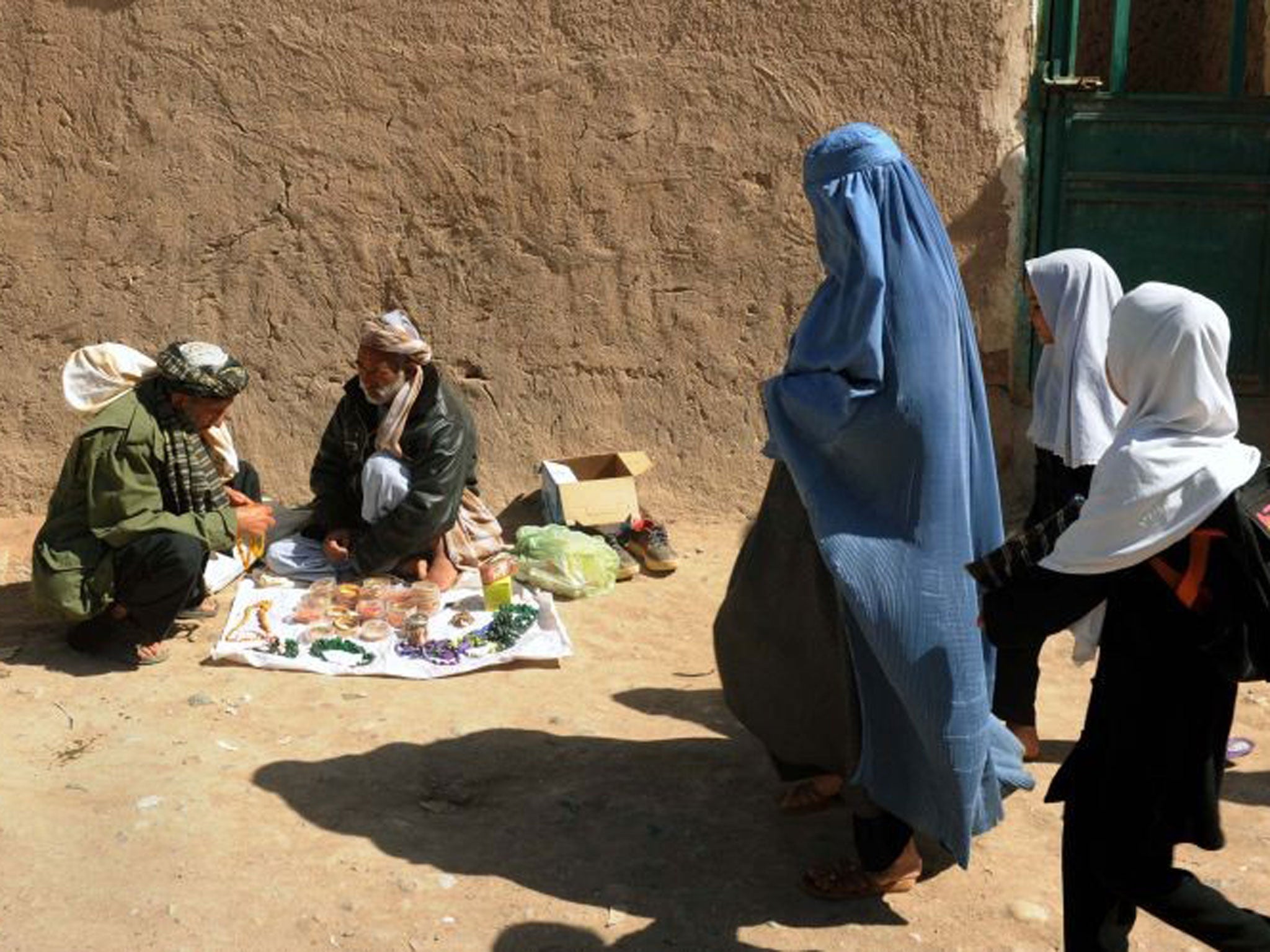Farewell Kabul by Christina Lamb, book review: A lament for Afghanistan
A spellbinding and highly personal account of the West's disastrous response to 9/11

Your support helps us to tell the story
From reproductive rights to climate change to Big Tech, The Independent is on the ground when the story is developing. Whether it's investigating the financials of Elon Musk's pro-Trump PAC or producing our latest documentary, 'The A Word', which shines a light on the American women fighting for reproductive rights, we know how important it is to parse out the facts from the messaging.
At such a critical moment in US history, we need reporters on the ground. Your donation allows us to keep sending journalists to speak to both sides of the story.
The Independent is trusted by Americans across the entire political spectrum. And unlike many other quality news outlets, we choose not to lock Americans out of our reporting and analysis with paywalls. We believe quality journalism should be available to everyone, paid for by those who can afford it.
Your support makes all the difference."Rule number one in politics," Harold Macmillan was fond of declaring, "is never invade Afghanistan." But in the tumultuous days after 9/11, his witticism was ignored. Less than a month after the Twin Towers fell, the United States and its allies launched an all-out war against Afghanistan's rulers.
The initial aim of displacing the Taliban and their al-Qaeda guests was a rapid military triumph. Christina Lamb describes her comprehensive account of what led to that war, and what followed, as "the story, by someone who lived through it, of how we turned success into defeat".
Lamb started reporting on Afghanistan in the latter stages of the Soviet occupation in the late 1980s, and has maintained her passionate involvement with the country ever since. The result is a spellbinding synthesis of analysis and highly personal reportage. Although focusing mainly on the story post 9/11, Lamb's grasp of the back story enables her to weave illuminating historical context into the narrative. And then there are the quirky details garnered from the main players.
Who knew, for instance, that Karzai's internationally admired dress sense came about by accident? Parachuted into Kabul and the job of president after the Taliban fell, he had to borrow his first green and blue striped chapan coat and astrakhan hat because his own more ordinary clothes had been left in Pakistan. More tellingly, who could guess that John Reid, the Defence Secretary who sent British troops into Helmand in 2006, was unable, when asked, to locate Afghanistan on a map?
Anyone visiting Kabul in recent years, as I have, quickly becomes aware of the huge disconnect between the international community and its aspirations for Afghanistan, and the Afghan people themselves. Lamb's favourite instances of the resultant absurdities include $3m spent on patrol boats for a country with no coastline. She also tells the tale of a meeting of Afghan elders, addressed by a woman from the British development agency Dfid, who began by saying "we respect your culture", and then started lecturing them on gender rights. The elders, whose own women were kept in purdah, "did not know where to look," says Lamb.
Such stories might be funny, but in conflict zones, the damage was deadly serious. Lamb's graphic description of being caught up in a two-hour firefight alongside British squaddies almost makes the reader's own heart beat faster. But although warmly sympathetic to the Paras she is embedded with, she goes on to analyse how British ignorance of tribal politics and mission creep in Helmand effectively created an insurgency where none had been. Similarly, mounting civilian casualties caused by US air strikes alienated Afghan opinion.
While Lamb wears her love for Afghanistan easily on her sleeve, her feelings for Pakistan are more ambiguous. Studded throughout the book are instances of Pakistani double-dealing, and in particular the insidious involvement with the Taliban and al-Qaeda of Pakistan's ubiquitous military intelligence agency ISI. One chapter heading even reads "Whose Side Are You On?", although the West's conundrum of how to deal with a nuclear-armed Pakistan where the army and the general population are becoming increasingly Islamicised and anti-American is not, and cannot easily be, resolved.
Lamb describes the West's involvement in Afghanistan as a "defeat", and believes that the world is far more dangerous than it was before 9/11, at least partly because of the US-led response. How far is her pessimism justified? Some analysts argue that there remain grounds for hope, and that the Taliban are unlikely to make a comeback. Farewell Kabul ends with a lament for what she calls "a land of pomegranates and war". But despite all the sufferings of that beautiful country, going by Lamb's evidence, perhaps the country we should be more worried about is Pakistan.
Join our commenting forum
Join thought-provoking conversations, follow other Independent readers and see their replies
Comments